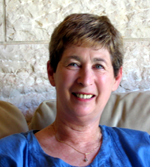By Dorothea Shefer-Vanson

MEVASSERET ZION, Israel –How we got onto the topic of education about the Holocaust I don’t quite know, but in a recent conversation with some friends I happened to say that I didn’t think it appropriate or beneficial for Israeli high-school students to go on school trips to Poland to visit concentration camps. My friends were quite surprised, as they all seemed to think it was a good idea for young people to tour the camps, so that they could see for themselves what the Nazis had perpetrated.
One of my friends, who used to be a psychological advisor in the Ministry of Education, assured me that these trips were very carefully planned, involving preparatory talks and material as well as follow-up sessions. He added that the youngsters were carefully monitored throughout, and especially upon returning, to ensure that they did not suffer psychological damage. Teachers were told to watch out for indications of depression or untoward behavior, and psychologists were on hand to deal with any problems that might arise.
He himself had been on a multi-ethnic trip to the concentration camps, in a group of over 300 Israelis and Arabs, among them Jews and Druze, Christians and Muslims, and it had been extremely beneficial to all concerned.
My objection to these jaunts is that life in Israel it pretty tough as it is, with various political and economic problems besetting the general population, and two or three years of military service awaiting most of the teenagers at the end of their schooling. In addition, they have to contend with the usual issues confronting young people all over the world – the bewildering world of adulthood, the confusing signals sent by their bodies, the continuous bombardment by the various media surrounding them – and that’s quite enough to be going on with.
Why burden these kids even more by bringing them into close and personal contact with the horrors of the past?
It’s not that I’m against educating the younger generation about the Holocaust. In fact, in Israel it’s very difficult to get away from it. There are still several thousand concentration camp survivors within the population today, not to mention people who were forced to flee their homes in Nazi-occupied Europe. The annual Holocaust Remembrance Day is marked with national ceremonies of various kinds, 24-hour TV and radio programming, and the closure of cinemas, clubs, pubs, and theatres. Furthermore, as part of the national school curriculum, at around age 12 most children research their family’s history to produce a wide-ranging project on their ‘Roots.’ This involves interviewing parents, grandparents, and other relatives, and accessing historical material. In many cases the Holocaust features in these accounts.
In Israel we also have one of the world’s foremost Holocaust museums, Yad Vashem, and all schoolchildren are taken there when they reach an appropriate age. Army units are also taken to tour the museum and to hear lectures about the events of that time, sometimes even first-hand accounts by survivors. Other, smaller museums in Israel also deal with Holocaust-related events, among them Beit Theresienstadt, which is situated in a kibbutz in the northern part of Israel. No one living in Israel today, whether Arab or Jew, can claim to be ignorant of the Holocaust.
When it comes to youngsters living in other countries, the situation is different. Obviously, school systems abroad do not focus on the Holocaust to the same extent as those in Israel, and Jewish youngsters abroad may well be ignorant on the subject. That is something which their parents and communities have to deal with. Plenty of educational material of all levels and for all ages is available, if one knows where to find it, and of course by now there are Holocaust memorials and Jewish museums in many cities. Anyone who wants to learn about that terrible period in Jewish history can easily find it.
Yes, educate kids about the Holocaust, by all means. But don’t we run the risk of defeating our purpose by overdoing things?.
*
Shefer-Vanson is a translator and freelance writer based in Mevassseret Zion, Israel. She may be contacted at dorothea.shefer@sdjewishworld.com